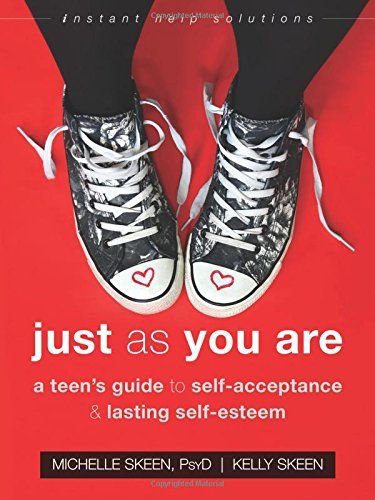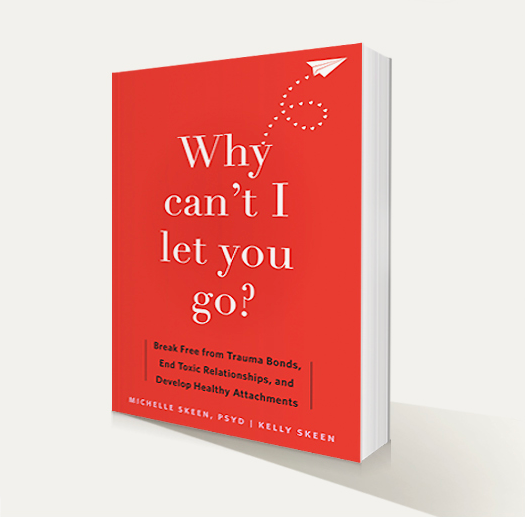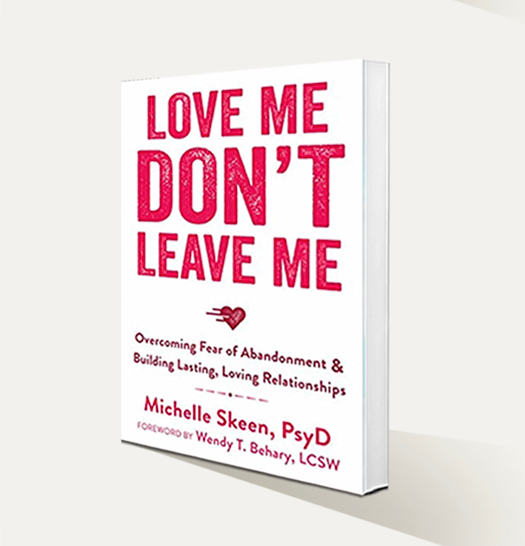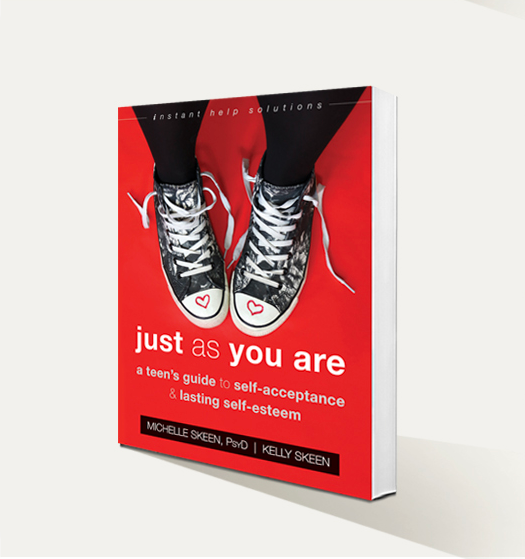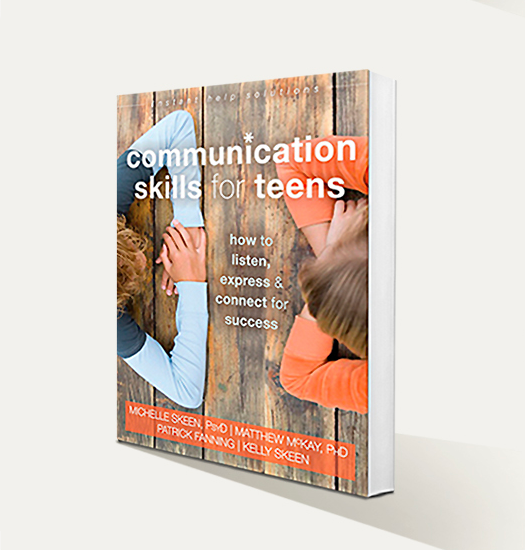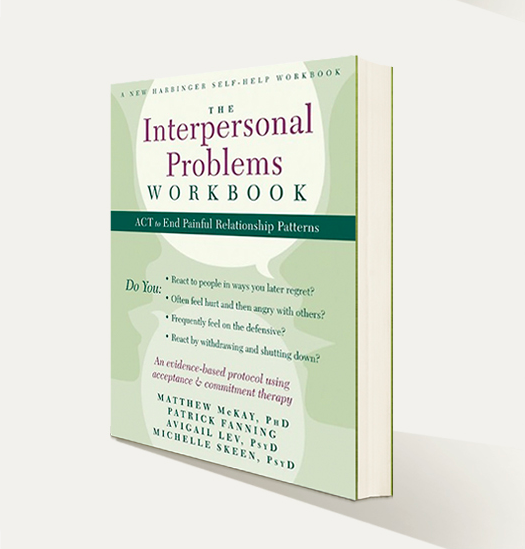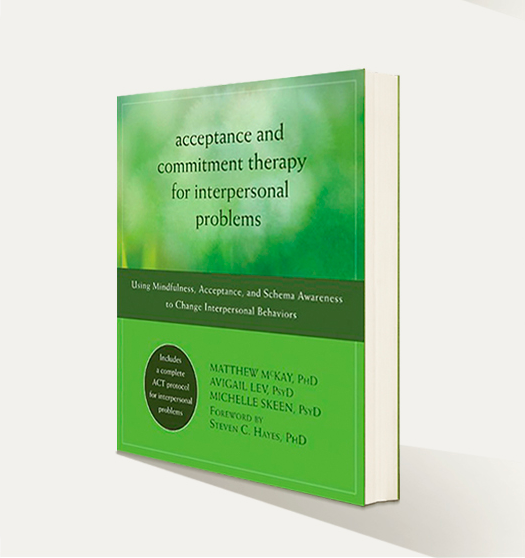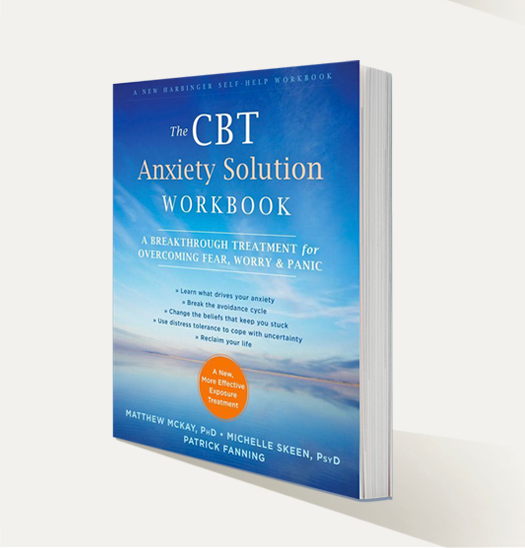My radio show on Thursday August 16, 2018
This week on Relationships 2.0 my guest is Kelly Skeen (PART 2) co-author of Just As You Are: A Teen’s Guide to Self-Acceptance & Lasting Self-Esteem. Carolyn Twersky with Seventeen.com and her mother Laura Twersky join us to discuss some of the challenges faced by teens.
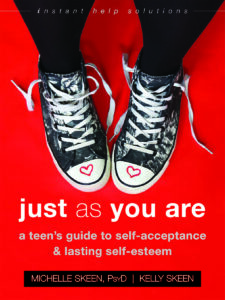 About the book:
About the book:
Stop comparing yourself to others—you’re special just as you are! In this fun, practical guide, you’ll learn how to silence your nit-picky inner critic, cultivate self-compassion, and discover what really matters to you.
If you’re like many teens, you probably feel pressured to live up to the impossible standards set by our culture, the media, and even by your peers. After all, everyone wants perfect hair, a perfect body, cool friends, and good grades. But while it’s okay to strive to be your best, it’s also easy to get caught up in a never-ending comparison game that can feed your inner critic and rob you of your happiness. So, how can you break free from negative self-criticism and learn to appreciate your strengths?
In Just As You Are, psychologist Michelle Skeen and her daughter, Kelly Skeen, offer simple tips to help you overcome feelings of inadequacy and unworthiness, stop comparing yourself to others, and be more open and accepting of all aspects of who you are. You’ll also learn how to be more aware of your thoughts and feelings in the moment using powerful mindfulness tools, and build a plan of action for the future based on your values.
Sometimes it’s hard to see yourself with clarity and kindness. With this important guide, you’ll learn to move past your faults, celebrate your true strengths, and discover what really matters in your life. What are you waiting for?
About the author:
Kelly Skeen is a recent graduate of Georgetown University in Washington, DC. As an American studies major, she concentrated in art and museum studies, and plans to pursue a career expanding access to the visual arts. She is also coauthor of Communication Skills for Teens with her mother, Michelle Skeen. Skeen strives every day for greater self-acceptance and to embrace who she really is! To learn more, visit her website at www.kellyskeen.com.
Seventeen.com featured Just As You Are: A Teen’s Guide to Self-Acceptance and Lasting Self-Esteem

If being a teen is hard, then being a teen in 2018 might just seem impossible. In the midst of self-discovery, you have to deal with Instagram likes and so many filter options. There’s a constant round of feedback these days, and it can be so hard to tune all that out enough so that you can actually listen to yourself.
With the help of Just As You Are: A Teen’s Guide to Self-Acceptance and Lasting Self-Esteem, a book co-authored by psychologist and mom Michelle Skeen and her teen daughter Kelly, we will look at why self-esteem can sometimes feel like an uphill battle and what you can do to become more confident.
Here’s how you can boost your self-esteem…
YOU’RE NOT ALONE
Let’s get one thing straight: You are def not alone when it comes to having negative feelings about yourself sometimes, especially if you’re a girl. Why? Because society has turned female self-worth into a consumerist power play, where women are meant to feel like they’re less than so that are inspired to purchase things in order to feel good enough, thus fueling a lot of big businesses.
Another thing that can make matters worse when it comes to self-esteem is social media. In this world of comparison, where everyone’s lives are well-curated and on display, it’s easy to assume everyone, but you, is perfectly confident. “This can result in feeling that you are flawed—not as perfect as other people might seem,” says Michelle. “When these feelings get repeatedly reinforced overtime, it can lead to shame, depression, anxiety, and isolation.”
And this is something that so many teens experience. Even the girl with ALL the likes will sometimes feel like she’s not worthy, because self-worth comes from the inside (and no amount of comments can really change what the inside of your heart looks like). Confidence takes work for EVERYONE, and you can totally get there if you try.
SCIENCE PLAYS A ROLE, TOO
A lot of things can feel stressful when you’re a teen, and sometimes it’s not just circumstantial. Even science plays into how you’re feeling about yourself. “Teens are primarily ruled by their amygdala (the emotional part of the brain), while the rational part of the brain (the prefrontal cortex) is still developing,” Michelle says. This can make logically NBD situations feel really intense and upsetting.
KNOW WHAT’S REALLY MAKING YOU FEEL BAD
So how can you get your brain out of the way so that you can live your best *confident* life? The key is figuring out what makes you feel bad about yourself and learning how to minimize those negative situations.
For example, maybe you feel bad after hanging out with a particular group of friends. Think back to your most recent hang. Did anything happen that made you suddenly feel off? Maybe you noticed one friend low-key shading you, or there’s a chance your bestie talks about losing weight a lot and it makes you feel uncomfortable about your own body.
If you value the friendship with the person who seems to be bringing up negative feelings, try to chat with them about it. Maybe they’re in a confidence funk, too, and you’ll be just what they need to do a little internal work to feel better about themselves.
If the friendship has gotten too toxic, it also might be worth putting the squad on ice and spending a little more time with other friends or hanging out solo.
FIGURE OUT YOUR VALUES
According to Just As You Are, feeling more confident is “an inside job.” Instagram likes won’t actually build you up from the inside out. Instead, what you really need to focus on is “what matters to you and how you want to be seen.”
In order to do this, you need to identify your values. If you’re not sure what your morals are, ask yourself questions like:
- What is a trait that I respect most in other people?
- What is a turn-off in a crush or best friend?
- What is a quality that I want to be able to identify in myself?
- Who do I admire and why?
The answers to these questions will help you create a list of things you value (and odds are you respect your bestie’s intelligence over her IG game). Now that you know the traits you truly strive for, try to work towards them. If you admire a crush because of their powerful presence, go outside your comfort zone with an extracurricular activity (maybe theater?) so you can identify and hone that quality in yourself.
BE MINDFUL
Have you ever been in bed, trying to fall asleep and all of the sudden your brain is like: Hey, remember that really awkward thing you did on July 1, 2011? Bam, you can no longer sleep; all you can do is think about that awful moment that was years ago.
Obviously, you can’t help it when those negative thoughts pop into your head, but “by attaching to our negative beliefs and the resulting thoughts, we come to believe that they define who we are at our core,” according to Just As You Are. “In turn, our inner self is expressed through our outer self.” And this practice can be really toxic.
To combat those thoughts that keep you up at night, try your hand at mindfulness, or “the basic human ability to be fully present, aware of where we are and what we’re doing,” according to Mindful.org.
To gain control over negative thoughts, you need to get some distance from them. In Just As You Are, Michelle walks you through an exercise to help with this process…
Take a few minutes and write down the thoughts in your head. Then, go through these thoughts, looking for patterns, really dissecting them. Do they mostly have to do with the future? Do they all involve school work? Do they revolve around social situations?Taking these thoughts out of your head and putting them on paper allows you to look at them in a different light and helps you understand more of where they come from, what they’re focused on and what they mean. Then, you can begin focusing in on a specific issue. For example, if all your negative thoughts pertain to the future, try making a one year plan to organize the thoughts and up your confidence regarding the upcoming months.
REALLY LISTEN
Sometimes you’re your own worst enemy. Case in point: You ask your bestie to critique your class presentation, so she tells you that you spoke a little fast, but that all of the information you said was really well-put and interesting. As your own biggest critic, “you will likely latch on to comments that confirm your negative beliefs about yourself,” according to Michelle. And you’ll miss all the good stuff your bestie is saying about you!
In order to avoid this, try to be an active listener and truly pick up on everything, not just the aspects that confirm the negative thoughts you have in your head. It’s easier said than done, but with practice, it can be achieved.
Everyone struggles with self-esteem issues. Some deal with it every day, while others find those bad thoughts creeping up every once in a while. Whatever the case may be, it’s important to realize that you can gain control over your self-confidence.
For more tips like the ones above, check out Just As You Are: A Teen’s Guide to Self-Acceptance and Lasting Self-Esteem.
Just As You Are: A Teen’s Guide to Self-Acceptance and Lasting Self-Esteem
amazon.com$16.95
My radio show on Thursday August 2, 2018
This week on Relationships 2.0 my guest is Kelly Skeen co-author of Just As You Are: A Teen’s Guide to Self-Acceptance & Lasting Self-Esteem
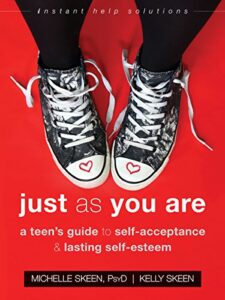 About the book:
About the book:
Stop comparing yourself to others—you’re special just as you are! In this fun, practical guide, you’ll learn how to silence your nit-picky inner critic, cultivate self-compassion, and discover what really matters to you.
If you’re like many teens, you probably feel pressured to live up to the impossible standards set by our culture, the media, and even by your peers. After all, everyone wants perfect hair, a perfect body, cool friends, and good grades. But while it’s okay to strive to be your best, it’s also easy to get caught up in a never-ending comparison game that can feed your inner critic and rob you of your happiness. So, how can you break free from negative self-criticism and learn to appreciate your strengths?
In Just As You Are, psychologist Michelle Skeen and her daughter, Kelly Skeen, offer simple tips to help you overcome feelings of inadequacy and unworthiness, stop comparing yourself to others, and be more open and accepting of all aspects of who you are. You’ll also learn how to be more aware of your thoughts and feelings in the moment using powerful mindfulness tools, and build a plan of action for the future based on your values.
Sometimes it’s hard to see yourself with clarity and kindness. With this important guide, you’ll learn to move past your faults, celebrate your true strengths, and discover what really matters in your life. What are you waiting for?
About the author:
Kelly Skeen is a recent graduate of Georgetown University in Washington, DC. As an American studies major, she concentrated in art and museum studies, and plans to pursue a career expanding access to the visual arts. She is also coauthor of Communication Skills for Teens with her mother, Michelle Skeen. Skeen strives every day for greater self-acceptance and to embrace who she really is! To learn more, visit her website at www.kellyskeen.com.
Does Social Media Feed Your Feelings of Unworthiness?
 By Kelly Skeen and Michelle Skeen, PsyD, authors of Just As You Are
By Kelly Skeen and Michelle Skeen, PsyD, authors of Just As You Are
How many times have you looked at your phone today? 10? 20? 30? 40? If you’re an average tween or teen you’ve looked at your phone 46 times. And, you’ve spent a third of your day using media—Instagram, Facebook, online videos, and music. Maybe you do it without thinking.
Have you ever thought about how all of these images are impacting your beliefs about yourself and others? It’s likely that, knowingly or unknowingly, you are comparing yourself to the images you see on your feeds every day. All of us struggle with some aspect of ourselves. This feeling is reinforced and likely made worse by social media and the constant and ever-changing messages you receive about what you need to do, to look like, and to act like in order to be accepted. It can leave you feeling like you need to hide parts of yourself that aren’t perfect and/or don’t fit within the norm. This by itself feels like a setup for failure.
As you might imagine, your beliefs about yourself are a mixed bag. You probably hold some beliefs about yourself that are positive. Maybe you make friends easily, you have great hair, you are close with your siblings, you excel academically, you’re good at sports, and so on. But you also likely have beliefs about yourself that are negative. In fact, this might mean that you are hiding parts of yourself because you fear being judged, not accepted, or both. You may feel that you are outside of the norm in some way. There might even be aspects of your identity that you have no control over or you don’t like—such as your ethnicity, religion, family, culture, height, eye color, body type…you get the point.
Of course, there is even more of your life that is out of your control, because you have parental figures who control parts of your life that you have little or no say about—where you live, what school you attend, activities you are or are not allowed to participate in, who you can be friends with, who you can date—the list goes on. There’s a good chance that you feel inadequate, flawed, or not good enough as a result of some of these factors.
Every teenager (even the ones that seem perfect!) struggles with feelings of inadequacy, defectiveness, and unworthiness. This impacts your feelings of self-worth, which might be holding you back or getting in the way of satisfying peer interactions and acceptance. Like most people, you care what other people think of you, and you probably spend at least some time comparing yourself to your peers. Social media feeds our natural tendency to compare how we measure up to others. This can result in feeling that you are flawed—not as perfect as other people might seem. When these feelings get repeatedly reinforced over time, it can lead to shame, depression, anxiety, and isolation.
We are all wired to connect with others, and when we do make healthy connections, we thrive. So it makes sense that we would want to be accepted by others, and we would fear being found not good enough and rejected. In fact, you may go to great lengths to avoid judgment or rejection from others. This might include seeking affirmation from others, being unable or unwilling to make decisions without approval from others, or having difficulty hearing even mild criticism.
You may find it difficult to accept and share parts of yourself that are out of your control, or you may feel like you need to be a certain way to be liked and accepted by others. Or you may focus more of your energy on others to distract them from the ways in which you feel insufficient. You may already be thinking about the parts of yourself that make you feel less than, or that you hide from others because you fear the response you might receive. And you might even be aware of the ways this holds you back from realizing your full potential or building the relationships that you long for.
The truth is that you don’t have to keep hiding from others or comparing yourself to others. You are beautiful and perfect just as you are.
Lifelong struggles with feelings of unworthiness and inferiority begin with beliefs formed when we’re teenagers. Just As You Are empowers teens to identify and eliminate these beliefs now, before they take root and cause problems like depression, addiction, and failed relationships in adulthood.
https://www.newharbinger.com/blog/does-social-media-feed-your-feelings-unworthiness
My radio show on Thursday July 12, 2018
This week on Relationships 2.0 my guest is Karen Bluth, PhD author of The Self-Compassion Workbook for Teens: Mindfulness & Compassion Skills to Overcome Self-Criticism & Embrace Who You Are
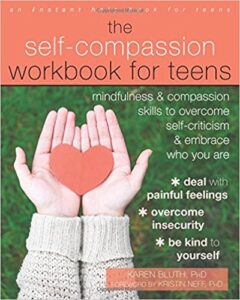 About the book:
About the book:
Your teen years are a time of change, growth, and—all too often—psychological struggle. To make matters worse, you are often your own worst critic. The Self-Compassion Workbook for Teens offers valuable tools based in mindfulness and self-compassion to help you overcome self-judgment and self-criticism, cultivate compassion toward yourself and others, and embrace who you really are.
As a teen, you’re going through major changes—both physically and mentally. These changes can have a dramatic effect on how you perceive, understand, and interpret the world around you, leaving you feeling stressed and anxious. Additionally, you may also find yourself comparing yourself to others—whether its friends, classmates, or celebrities and models. And all of this comparison can leave you feeling like you just aren’t enough. So, how can you move past feelings of stress and insecurity and start living the life you really want?
Written by psychologist Karen Bluth and based on practices adapted from Kristin Neff and Christopher Germer’s Mindful Self-Compassion program, this workbook offers fun and tactile exercises grounded in mindfulness and self-compassion to help you cope more effectively with the ongoing challenges of day-to-day life. You’ll learn how to be present with difficult emotions, and respond to these emotions with greater kindness and self-care. By practicing these activities and meditations, you’ll learn specific tools to help you navigate the emotional ups and downs of the teen years with greater ease.
Life is imperfect—and so are we. But if you’re ready to move past self-criticism and self-judgment and embrace your unique self, this compassionate guide will light the way.
About the author:
Karen Bluth, PhD, earned her doctoral degree in child and family studies at the University of Tennessee. She is currently research faculty in the Program on Integrative Medicine in the Department of Physical Medicine and Rehabilitation at the University of North Carolina School of Medicine. Her work focuses on the roles that mindfulness and self-compassion play in promoting well-being in teens. Bluth was awarded a Francisco J. Varela research award from the Mind and Life Institute in 2012, which allowed her to explore the effects of a mindfulness intervention on adolescents’ well-being through examining stress biomarkers. In spring 2015, she received internal University of North Carolina funding to explore relationships among mindfulness, self-compassion, and emotional well-being in teens in grades 7–12. With current NIH funding, she is part of a research team at the University of North Carolina that is studying the teen adaptation of Kristin Neff and Christopher Germer’s Mindful Self-Compassion program.
In addition to her research, Bluth regularly teaches mindfulness and mindful self-compassion courses to both adults and teens in the Chapel Hill, NC, area and regularly gives talks and leads workshops at schools and universities. In collaboration with Lorraine Hobbs, Bluth has adapted Kristin Neff and Christopher Germer’s Mindful Self-Compassion program for an adolescent population. A former educator with eighteen years classroom experience, Bluth is currently associate editor of the academic journal Mindfulness.
My radio show on Thursday May 31, 2018
This week on Relationships 2.0 my guest is Michael A. Tompkins, PhD author of The Relaxation and Stress Reduction Workbook for Teens: CBT Skills to Help You Deal With Worry and Anxiety
 About the book:
About the book:
Today’s teens are totally stressed. Based on the self-help classic, The Relaxation and Stress Reduction Workbook, this evidence-based guide will help you develop a game plan for reducing stress so you can focus on reaching your goals.
Are you feeling stressed out? You aren’t alone. Between school, tests, friendships, dating, the latest drama on social media, college applications, and a bunch of confusing physical changes, it’s no wonder that stress is a major mental health issue for many of today’s teens. The good news is that there are simple ways you can reduce your stress and reach your goals. This workbook will show you how.
With The Relaxation and Stress Reduction Workbook for Teens, you’ll learn to understand the underlying causes of your stress. You’ll discover practical mindfulness and breathing techniques to help you calm your mind and body in moments of worry and anxiety. You’ll also find tips for moving past “what ifs” and “shoulds,” strategies for managing negative thoughts and emotions, and tools to help you develop your own personalized plan for dealing with stress.
If you’re ready to move past stress and worry and start focusing on your bright future, this workbook has everything you need to get started today.
Teens need mental health resources more than ever. With over 1.2 million copies sold worldwide, Instant Help Books for teens are engaging, proven-effective, and recommended by therapists.
About the author:
Michael A. Tompkins, PhD, ABPP, is codirector of the San Francisco Bay Area Center for Cognitive Therapy; assistant clinical professor at the University of California, Berkeley; and a diplomate and founding fellow of the Academy of Cognitive Therapy. Tompkins specializes in the treatment of anxiety disorders and obsessive-compulsive spectrum disorders in adults, adolescents, and children. He is author or coauthor of numerous articles on cognitive behavioral therapy (CBT) and related topics, as well as seven books, including three books published by New Harbinger Publications: Digging Out, OCD: A Guide for the Newly Diagnosed, and Anxiety and Avoidance. Tompkins serves on the advisory board of Magination Press, the children’s press of the American Psychological Association. He is a certified supervisor and trainer for the Beck Institute for Cognitive Behavior Therapy and the Academy of Cognitive Therapy. Tompkins has been featured in The New York Times, The Wall Street Journal, on NPR, and has presented over 250 workshops, lectures, and keynote addresses on CBT and related topics.
My radio show on Thursday January 18, 2018
This week on Relationships 2.0 my guest is Jeffrey Bernstein, PhD author of Mindfulness for Teen Worry: Quick & Easy Strategies to Let Go of Anxiety, Worry & Stress
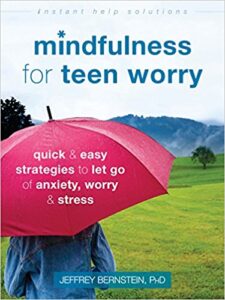 About the book:
About the book:
Is your worrying keeping you from reaching your goals? In Mindfulness for Teen Worry, a clinical psychologist offers quick, easy-to-learn mindfulness skills teens can use anytime, anywhere to stop worries from growing and taking over.
Let’s face it—being a teen isn’t easy. And if you’re like a lot of other teens, you probably worry about getting good grades, fitting in with a certain crowd, or what the future will bring after high school. These are all completely normal worries, and signs that you are tuned in to your life and thinking about your goals. But what about chronic worrying—the kind that keeps you up at night, ruminating about that paper you just turned in, or that thing your friend said to you at lunch (what did she mean by that?), and so on. Sometimes worrying isn’t helpful. In fact, it can get in the way of living your life! So, how can you start putting worry in its place before it takes up too much head space?
Mindfulness for Teen Worry will show you how living in the moment will dissolve worry and help you stay grounded in the here and now. You’ll learn powerful and easy-to-use mindfulness skills to manage the four most common worry struggles teens face: school pressure, coping with friendship and relationship problems, improving body image, and handling family conflicts. You’ll discover why you worry and the long-term destructive impacts worry can have on your life. And most importantly, you’ll be introduced to simple, effective techniques to help you become more mindful—like harnessing the power of the breath and how to relax your body in times of stress.
If you struggle with worry or anxiety that gets in the way of being your best, this fun and friendly guide will help you maintain a mindful life in a frenzied world.
About the author:
Jeffrey Bernstein, PhD, is a psychologist with over thirty years’ experience specializing in child, adolescent, couples, and family therapy. He holds a PhD in counseling psychology from the University at Albany, State University of New York, and completed his postdoctoral internship at the Center for Counseling and Psychological Services at the University of Pennsylvania. He has served as an expert advisor for The Today Show, Court TV, CBS Eyewitness News, NBC 10 – Philadelphia, and appeared on National Public Radio. He has authored five books, including 10 Days to a Less Defiant Child, 10 Days to Less Distracted Child, Liking the Child You Love, Why Can’t You Read My Mind?, and Letting Go of Anger, a card deck for teens.
How to Talk to Anyone
As Seen In
Article related to Communication Skills for Teens:
How to Talk to Anyone
Choices
by Andrea Bartz
click to enlarge:
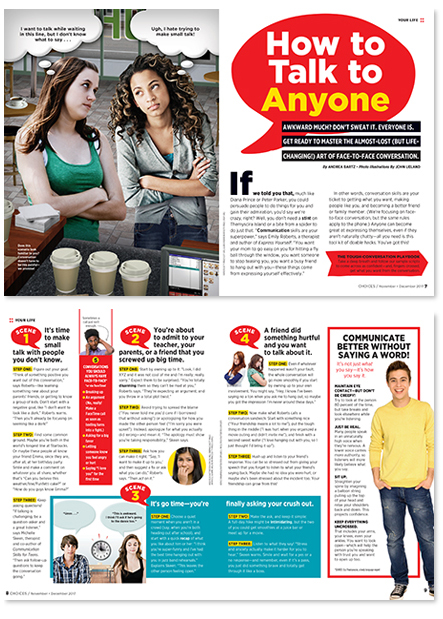
My daughter and I have a new book coming out June 2018
Just As You Are: A Teen’s Guide to Self-Acceptance & Lasting Self-Esteem, co-authored with my daughter, Kelly Skeen
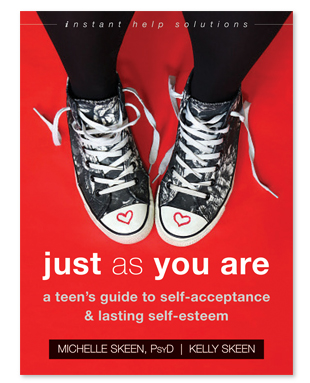
My radio show on Thursday May 11, 2017
This week on Relationships 2.0 my guest is Ben Sedley author of Stuff That Sucks: A Teen’s Guide to Accepting What You Can’t Change and Committing to What You Can
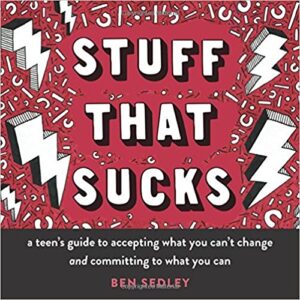 About the book:
About the book:
Sometimes everything sucks. This unique, illustrated guide will help you move past negative thoughts and feelings and discover what truly matters to you.
If you struggle with negative thoughts and emotions, you should know that your pain is real. No one should try to diminish it. Sometimes stuff really does suck and we have to acknowledge it. Worry, sadness, loneliness, anger, and shame are big and important, but they can also get in the way of what really matters. What if, instead of fighting your pain, you realized what really matters to you—and put those things first in life? If you did that, maybe your pain wouldn’t feel so big anymore. Isn’t it worth a try?
Stuff That Sucks offers a compassionate and validating guide to accepting emotions, rather than struggling against them. With this book as your guide, you’ll learn to prioritize your thoughts, feelings, and values. You’ll figure out what you care about the most, and then start caring some more! The skills you’ll learn are based on acceptance and commitment therapy (ACT). Yes, there are a few written exercises, but this isn’t a workbook. It’s a journey into the stuff that sucks, what makes that sucky stuff suck even more, and how just a few moments each day with the stuff that matters will ultimately transform the stuff that sucks into stuff that is just stuff. Make sense?
Maybe you want to be more creative? Or maybe you simply want to do better in school or be a better friend? This book will show you how to focus on what you really care about, so that all that other sucky stuff doesn’t seem so, well, sucky anymore.
About the author:
Ben Sedley is a clinical psychologist and acceptance and commitment therapy (ACT) practitioner with over fifteen years of experience working with kids, adolescents, and families facing mental health difficulties.
He is also the father of three wonderful noisy kids and loves The Ramones and The Clash



